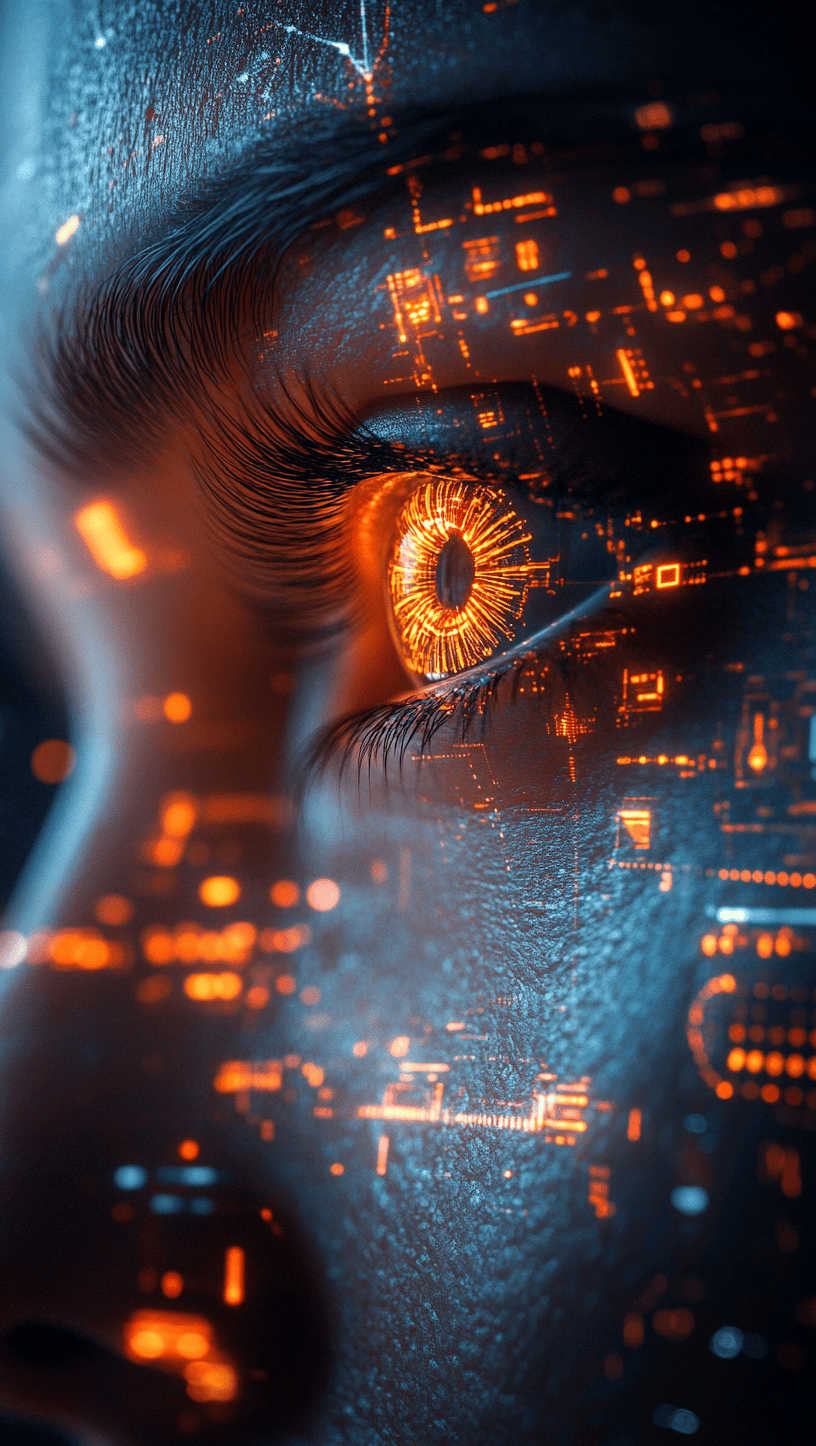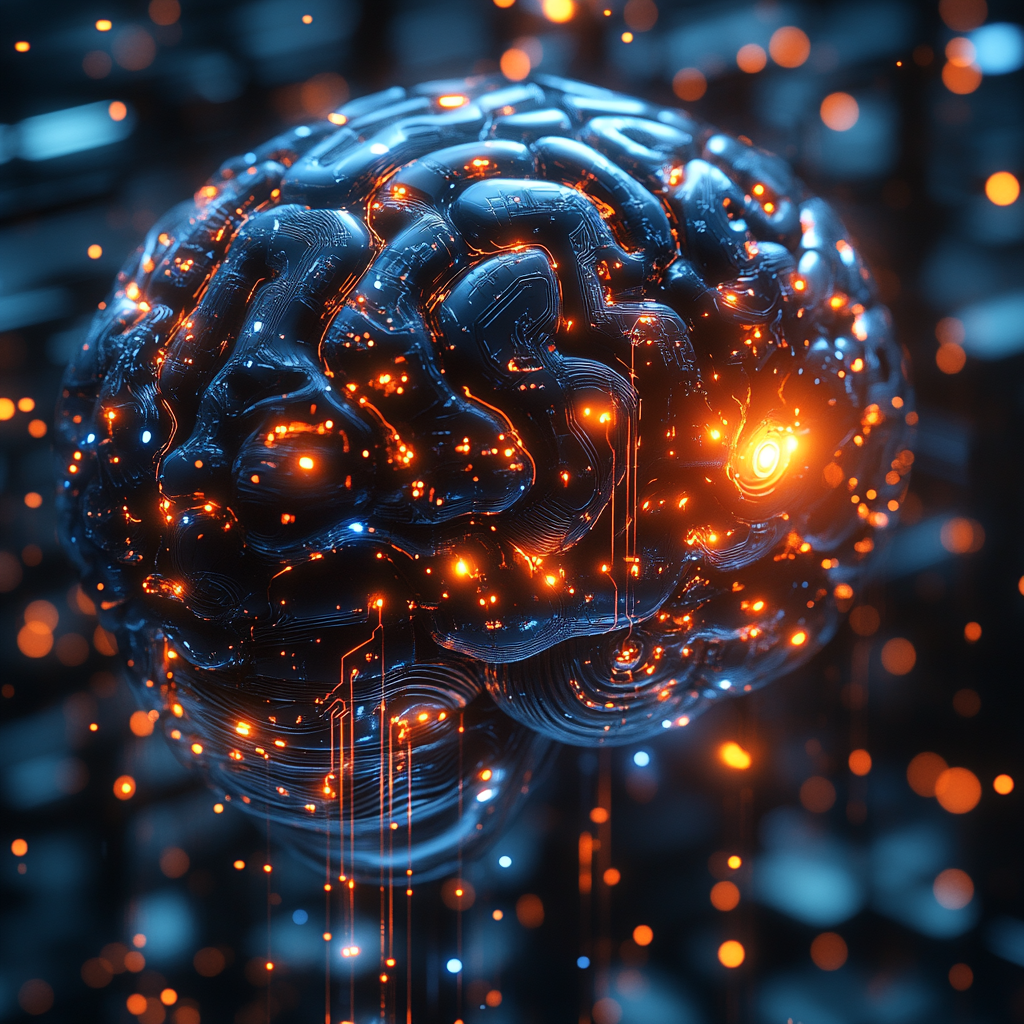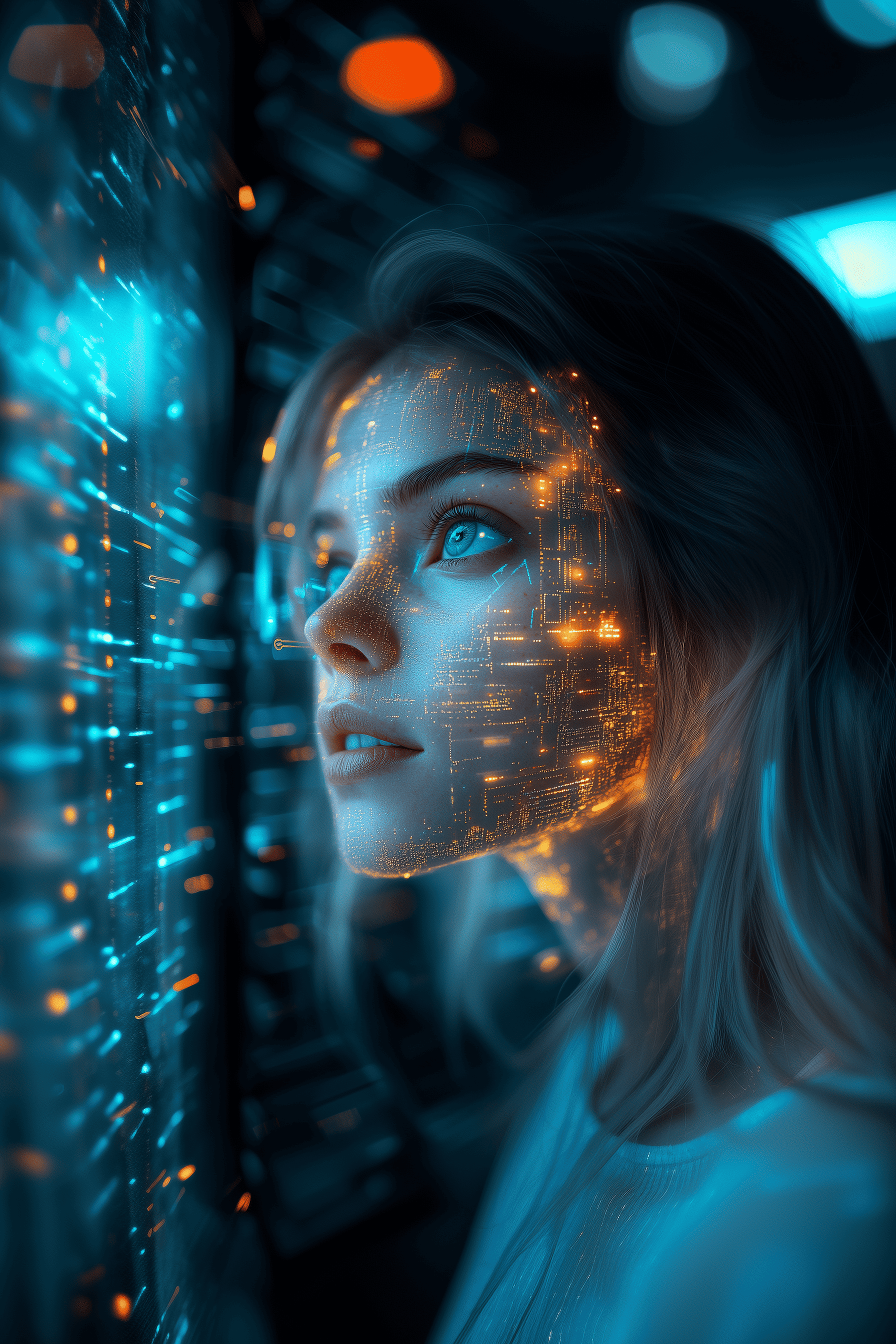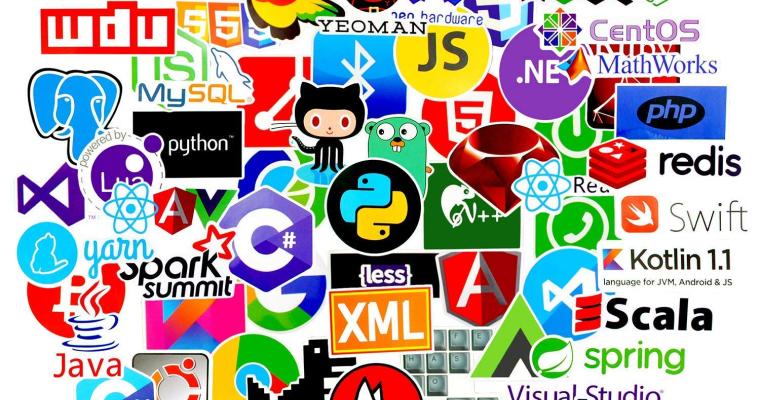Artificial Intelligence (AI) is changing how machines think and act. At the heart of AI are intelligent agents, which sense the environment and take actions to achieve goals. These agents are key to decision-making, automation, and learning.
AI agents come in different types, each designed for a specific purpose. Simple reflex agents react to inputs without thinking, while model-based agents use past experiences to make smarter choices. Goal-based agents aim for specific results, and utility-based agents find the best possible outcome. Learning agents improve over time, adjusting their actions based on feedback.
One exciting area of AI is multi-agent systems, where many agents work together. These systems are used in robotics, smart traffic control, and even online search agents that help find information quickly. Planning agents in AI help automate complex tasks, making industries more efficient.
Advanced AI models, such as knowledge-based agents, store and process information to make informed decisions. This is useful in medical diagnosis, finance, and customer service. Rational agents make the best possible decision based on available data, ensuring optimal performance.
The future of AI will rely on these various types of agents to solve real-world problems. As AI technology grows, agents will become more advanced, leading to smarter automation, improved robotics, and better decision-making in industries worldwide.
Fundamentals of AI Agents
Artificial Intelligence (AI) relies on intelligent agents to perform tasks, make decisions, and interact with their surroundings. These agents are designed to work in different environments, from self-driving cars to virtual assistants. Understanding AI agents and their components is essential to see how they function and improve over time.
What is an AI Agent?

An AI agent is a system that observes its environment, processes information, and takes action to achieve a specific goal. In simple terms, it acts like a smart assistant that senses what’s happening and responds in the best way possible.
For example, a goal-based agent in AI focuses on completing a task, like a GPS navigation system finding the fastest route. Similarly, a learning agent in AI improves its decisions over time by learning from past experiences.
How AI Agents Perceive and Act
AI agents interact with their environment using two key steps:
- Perception – The agent collects data using sensors. This can be a camera, microphone, or even software-based data input.
- Action – After analyzing the data, the agent decides what to do next using actuators. This could be moving a robot, displaying information, or making a recommendation.
For example, a simple reflex agent in AI might automatically turn on a light when it detects darkness. A model-based agent in AI would analyze previous conditions and decide whether turning on the light is necessary based on other factors, like room occupancy.
Components of an AI Agent
Each component of an AI agent plays a crucial role in how it interacts with its environment. Sensors allow the agent to perceive data, while actuators enable it to take actions based on that information. The agent function determines how inputs are processed into meaningful outputs. An agent program defines the logic and rules guiding the agent’s behavior. Together, these components ensure that AI agents operate efficiently and make rational decisions.
1. Perception (Sensors)
Sensors collect information from the environment. In robotics, this could be a camera, GPS, or a temperature sensor. In software, it might be a system monitoring user interactions, like a virtual agent in AI tracking a customer’s preferences.
Example: A software agent in AI for an online store detects what products users search for and recommends similar items.
2. Action (Actuators)
Actuators allow an agent to respond to the environment. A self-driving car, for instance, has motors and steering systems that adjust based on road conditions. In a chatbot, actuators could be responses generated based on user queries.
Example: An internet shopping agent in AI not only finds the best price for a product but can also purchase it automatically if programmed to do so.
3. Agent Function
The agent function maps inputs (perceptions) to outputs (actions). It follows a set of rules or algorithms to decide what to do next. The smarter the function, the better the agent performs in complex environments.
Example: A rational agent in AI will always choose the best possible move in a chess game by analyzing all options before making a decision.
4. Agent Program
The agent program is the code or logic that defines how the agent behaves. AI agents can be programmed using languages like Python. Many developers use Python code for artificial intelligence foundations of computational agents to create AI models that can analyze data and make decisions.
Example: The Wumpus World in AI is a well-known environment used to test AI agents, helping them navigate obstacles and make logical choices.
Rationality in AI Agents
A rational agent in AI is designed to make the best possible decision in any given situation. Rationality means the agent acts in a way that maximizes its chances of success based on the information available.
For example, a planning agent in AI creates a step-by-step approach to solving a problem, ensuring the most efficient solution is chosen.
A rational agent must have the following qualities:
| Characteristic/Example | Description | Brand Example |
|---|---|---|
| Goal-Oriented Behavior | Focuses on achieving a goal, like a goal-based agent in AI planning the shortest delivery route for a package. | Google Maps, Amazon Delivery Drones |
| Perceptual Awareness | Uses real-time data to make informed decisions. | Tesla Autopilot, IBM Watson |
| Adaptive Learning | A learning agent in AI can improve over time by analyzing past mistakes. | OpenAI GPT, DeepMind AlphaGo |
| Self-Driving Cars | Use model-based reflex agents to adapt to traffic conditions, avoiding collisions and optimizing routes. | Tesla, Waymo, Cruise |
| Stock Market AI | A rational agent in AI analyzes financial trends and suggests profitable investments. | Bloomberg Terminal AI, Kensho, BlackRock Aladdin |
| AI Chatbots | A virtual agent in AI like IBM’s Watson answers customer questions, improving efficiency in customer service. | IBM Watson, ChatGPT, Google Bard |
| Game AI | Many video games use utility-based agents that adjust difficulty based on player skill levels. | DeepMind AlphaStar, OpenAI Five, NPC AI in Ubisoft Games |
Rational agents ensure that AI-driven decisions are optimal and efficient. Whether it’s an openAI hide and seek AI system learning how to hide better over time or a multi-agent system in AI coordinating delivery drones, rational decision-making is essential for success.
Types of AI Agents

AI agents are systems that perceive their environment and take actions to achieve specific goals. They play a crucial role in automation, decision-making, and learning. Based on their capabilities, AI agents are classified into different types, each suited for specific tasks. The five major types are Simple Reflex Agents, Model-Based Reflex Agents, Goal-Based Agents, Utility-Based Agents, and Learning Agents. These agents vary in complexity, from basic decision-making to advanced problem-solving techniques. Understanding these types helps in designing AI systems for industries like healthcare, gaming, finance, and robotics.
Simple Reflex Agents
A Simple Reflex Agent operates based on predefined rules and conditions. It does not have memory or an internal model of the environment. Instead, it reacts directly to sensor inputs using a condition-action rule. If a certain condition is met, the agent performs a specific action. A common example is a thermostat. When the temperature drops below a set threshold, the heating system turns on. Similarly, a motion sensor light turns on when it detects movement.
Strengths: Simple Reflex Agents are fast and efficient for straightforward tasks. They require minimal computation and are ideal for real-time applications.
Limitations: These agents cannot handle complex environments where memory and learning are required. They fail in situations where decision-making requires past knowledge.
Model-Based Reflex Agents
Model-Based Reflex Agents improve upon Simple Reflex Agents by maintaining an internal model of the environment. This model helps the agent remember past states and make better decisions. These agents store information about past events and use it to predict future conditions. They check how the environment evolves over time and adapt their actions accordingly.
A self-driving car is a perfect example. Unlike a simple reflex agent, which would only react to immediate inputs, a self-driving car remembers road signs, traffic signals, and the position of other vehicles. Tesla’s Autopilot and Waymo’s autonomous driving technology use this approach to enhance road safety and navigation.
Better Decision-Making: It can predict future states based on past observations.
More Versatile: Can function in slightly complex environments.
Example Uses: Smart vacuum cleaners like Roomba, weather prediction systems, and stock market forecasting AI.
Goal-Based Agents
Goal-Based Agents take decision-making a step further. Instead of just reacting to the environment, these agents consider long-term objectives before selecting actions. They evaluate multiple possibilities to determine the best path to achieve their goal. These agents use search algorithms and planning strategies to determine the best course of action. They need more computational power than reflex agents but are better at solving complex problems.
A delivery drone is an example. It doesn’t just react to its environment but plans the most efficient route to deliver a package. Companies like Amazon Prime Air and Zipline use such AI-powered drones for efficient and safe deliveries.
Navigation Systems: Google Maps uses goal-based AI to determine the fastest route.
Robotics: Autonomous warehouse robots optimize routes to move products efficiently.
Healthcare AI: IBM Watson diagnoses diseases by evaluating symptoms and predicting possible conditions based on medical data.
Utility-Based Agents
Utility-Based Agents consider multiple factors before making decisions. Instead of just achieving a goal, they evaluate different options and choose the one with the highest benefit. These agents use utility functions to measure the success of different actions. Utility functions assign numerical values to different outcomes. The agent selects the option with the highest score. For example, an AI-powered recommendation system prioritizes suggestions based on user preferences.
A stock market AI is a great example. It doesn’t just follow a rule-based approach but considers risks, potential profits, and market trends before making investments. Bloomberg Terminal AI and BlackRock’s Aladdin are well-known financial AI systems.
Video Game AI: Adjusts game difficulty based on player performance.
Ride-Hailing Apps: Uber’s AI calculates estimated time, fare, and demand to assign the best ride.
Healthcare AI: Personalized treatment recommendations based on patient history and available medical data.
Learning Agents
Learning Agents are the most advanced type of AI agents. They improve their performance over time by learning from past experiences. These agents use machine learning techniques to adjust their decision-making processes. A Learning Agent has four key components:
Learning Element – Improves based on experience.
Performance Element – Executes actions.
Critic – Evaluates results.
Problem Generator – Suggests new actions for better outcomes.
One of the best examples is AlphaGo, developed by DeepMind. It learned how to play the board game Go by playing millions of games against itself. Unlike simple AI, AlphaGo improved with each game, eventually defeating human world champions. Other examples:
Chatbots: OpenAI’s ChatGPT improves responses based on user feedback.
Speech Assistants: Google Assistant and Alexa get better at understanding accents and speech patterns over time.
Fraud Detection AI: AI systems in banking learn from transaction patterns to detect fraud.
Knowledge-Based Agents in AI

Knowledge-based agents are AI systems that use stored knowledge to make decisions. Unlike simple rule-based systems, they understand, learn, and apply knowledge to solve problems. These agents rely on a structured way of representing information, which helps them reason and adapt to new situations. They are widely used in expert systems, automation, and decision-making applications. By using logical reasoning and predefined knowledge, they can offer intelligent solutions in different fields like healthcare, business, and customer support.
What are Knowledge-Based Agents?
A knowledge-based agent is a type of AI that collects, stores, and uses knowledge to make decisions. It depends on knowledge representation, which is the way information is organized for AI to understand and use. Good knowledge representation allows AI to reason, learn, and improve decision-making. These agents can process large amounts of information and find patterns or solutions quickly. They are useful in applications where logic and problem-solving are important, such as medical diagnosis, legal advice, and automated customer support. By structuring knowledge effectively, AI can mimic human-like reasoning and provide more accurate responses.
Examples of Knowledge-Based Agents in AI
A common example of a knowledge-based agent is an expert system used in healthcare. These systems help doctors diagnose diseases by analyzing patient symptoms and medical history. Another example is chatbots used in customer service, which use stored knowledge to answer customer questions and solve issues. In business, knowledge-based agents help in risk assessment by evaluating financial data and predicting future trends.
Automation is another key area where these agents are used. For instance, AI-powered legal assistants can review legal documents and provide advice based on legal rules and past cases. In manufacturing, knowledge-based agents assist in quality control by detecting errors in production lines and suggesting fixes. These agents improve efficiency, reduce errors, and make better decisions by using structured knowledge.
Multi-Agent Systems (MAS) and Planning in AI
Multi-Agent Systems (MAS) are AI systems where multiple agents work together to solve problems. Each agent has its own knowledge, goals, and abilities, but they communicate and collaborate to achieve a common objective. MAS is used in robotics, simulations, traffic management, and smart grids. These systems are useful because they distribute tasks among multiple agents, making problem-solving more efficient. The agents can be independent or cooperative, depending on the situation. MAS helps AI function in complex environments where teamwork is needed.
What are Multi-Agent Systems?
A Multi-Agent System (MAS) is a group of AI agents that interact and cooperate to complete tasks. Unlike single agents that work alone, MAS allows multiple agents to share knowledge, divide work, and solve complex problems together. These agents can be software-based (like chatbots) or physical robots (like drones).
MAS is important because it improves efficiency and decision-making. For example, in self-driving cars, multiple AI agents communicate to avoid collisions and optimize traffic flow. In business, MAS helps manage supply chains by coordinating different parts of production and delivery. By working together, agents can solve problems that would be too difficult for a single AI. MAS is widely used in healthcare, finance, logistics, and security, making AI more effective in real-world applications.
Multi-Agent Planning in AI
Multi-Agent Planning (MAP) is how AI agents work together to achieve a shared goal. Instead of a single agent making all the decisions, multiple agents coordinate their actions and share information to improve efficiency. This is useful in scenarios where teamwork is required, such as rescue operations, automated warehouses, and robotics.
For MAS to plan successfully, agents need to:
Communicate: Share data and updates with each other.
Coordinate: Assign roles and avoid conflicts in actions.
Negotiate: Make decisions that benefit the whole system.
Adapt: Adjust strategies based on new information.
Optimize: Find the best possible solution with minimal resources.
An example is air traffic control, where multiple AI agents manage planes to prevent delays and accidents. Another example is a group of robots working in a warehouse, each picking and placing items efficiently to speed up the process. With proper planning, MAS can solve problems faster and more effectively than individual AI systems.
Single-Agent vs. Two-Agent Search
Single-Agent and Two-Agent Search are AI approaches used for decision-making. Single-agent search is when one AI agent looks for the best solution, like in route planning for navigation apps. Two-agent search involves two AI agents competing or cooperating, such as in chess games or negotiations.
| Feature | Single-Agent Search | Two-Agent Search |
|---|---|---|
| Number of agents | 1 | 2 |
| Goal | Find the best solution | Win or cooperate |
| Examples | GPS navigation, robot pathfinding | Chess, trading negotiations |
| Complexity | Less complex | More complex |
| Decision-making | Based on the environment | Depends on the other agent’s actions |
Single-agent search is useful for simple problem-solving, while two-agent search is needed in competitive or interactive environments. Both approaches are important in AI, depending on the type of challenge being solved.
AI Agents in Action: Real-World Applications

AI agents are widely used in different industries to improve efficiency, automate tasks, and enhance user experiences. From online shopping assistants to voice-powered AI, these agents help businesses and customers save time and make better decisions. AI-powered chatbots handle customer service inquiries, while self-learning AI can improve through trial and error. Many big brands, such as Amazon, IBM, and OpenAI, use AI agents in their products and services. These agents analyze data, learn from interactions, and provide smart recommendations. As AI technology advances, these agents will continue to play a bigger role in everyday life.
Internet Shopping Agent in AI
AI shopping agents help users find the best deals, compare prices, and recommend products based on personal preferences. Companies like Amazon, Google Shopping, and Honey use AI to automate online shopping.
- Amazon’s AI Recommender: When you browse Amazon, its AI suggests products based on your previous searches, purchases, and customer reviews. This makes shopping faster and more personalized.
- Google Shopping AI: Google’s AI scans multiple e-commerce websites and shows a list of the best prices for a product. This helps customers save money and compare deals easily.
- Honey (by PayPal): Honey is a browser extension that automatically applies discount codes when you shop online. Its AI scans thousands of coupon codes and finds the best one for your purchase.
These AI agents make online shopping easier, faster, and more cost-effective. Instead of searching for discounts or comparing prices manually, AI does the work for users. This improves customer experience and helps businesses increase sales.
IBM Voice Agent with Watson
IBM’s Watson is an AI-powered voice assistant that helps businesses automate customer support and streamline operations. Many companies use IBM Watson Voice Agent to handle customer inquiries, process requests, and improve communication.
- Banking and Finance: Banks like Royal Bank of Scotland use Watson to answer customer questions about accounts, loans, and transactions. The AI understands natural language and provides quick responses.
- Healthcare: IBM Watson Health helps doctors by analyzing patient data and suggesting treatments. It can process medical reports and provide insights in seconds.
- Call Centers: Companies like KPMG use Watson to automate customer service calls. The AI can answer frequently asked questions and route complex inquiries to human agents.
Watson’s AI-powered voice recognition allows businesses to provide 24/7 support without needing human agents all the time. This reduces costs and improves customer satisfaction by offering instant, accurate responses.
Virtual Agents in AI
Virtual agents are AI-powered chatbots and assistants that help businesses automate communication. Companies like Apple, Google, and Microsoft use virtual agents to improve customer service and productivity.
- Apple’s Siri: Siri is a voice assistant that helps users set reminders, send messages, and search for information. It learns from user preferences and improves over time.
- Google Assistant: Google Assistant can book appointments, answer questions, and control smart home devices. It integrates with Google services to provide a seamless experience.
- Microsoft’s Cortana: Cortana helps businesses by managing schedules, setting reminders, and providing updates. It is used in Microsoft Office to assist with tasks.
Virtual agents reduce wait times and handle repetitive tasks efficiently. They are widely used in e-commerce, banking, and customer service, making interactions smoother and more convenient for users.
OpenAI Hide and Seek
OpenAI’s Hide and Seek experiment is a famous example of AI self-learning using reinforcement learning. In this experiment, AI agents (hiders and seekers) play a game where they must develop strategies over time to win.
- Hiders’ Role: The hiders learn to block doors and move objects to hide effectively.
- Seekers’ Role: The seekers learn to move obstacles, climb over barriers, and find hiders efficiently.
- Self-Improvement: Over thousands of game rounds, the AI agents developed creative strategies, like stacking objects to reach hidden areas.
This experiment shows how AI can learn without direct programming by trial and error. The AI was not told how to hide or seek—it discovered strategies on its own. Similar reinforcement learning is used in robotics, gaming, and real-world automation, where AI learns from experience to improve decision-making.
Specialized AI Agent Categories

AI agents come in different types, each with a unique purpose. Some exist purely in software, handling automation and decision-making without human intervention. Others work collectively, mimicking how animals like ants or bees coordinate their actions. Some AI agents are built into physical robots, allowing them to interact with the real world. These specialized AI agents are used in industries like healthcare, transportation, and logistics. They help optimize processes, reduce human effort, and improve efficiency. As AI continues to evolve, these agents will play an even bigger role in shaping the future of technology and automation.
Software Agents in AI
Software agents are AI programs that operate independently to assist users or automate processes. They can analyze large amounts of data, learn from patterns, and make smart decisions without human input. Virtual assistants like Siri and Google Assistant use AI to understand speech and provide personalized responses. In finance, AI-powered trading bots analyze market trends and execute trades in milliseconds. Businesses also use AI-driven customer support chatbots to answer questions and assist customers instantly. By handling repetitive and time-consuming tasks, software agents improve productivity and allow humans to focus on more complex challenges.
Swarm Agents in AI
Swarm agents are AI systems that function as a group, working together to solve complex problems. Inspired by nature, these agents operate similarly to how flocks of birds, schools of fish, or colonies of ants move and communicate. In transportation, AI swarm systems help manage traffic flow by adjusting signals based on real-time congestion. In logistics, warehouse robots work together to sort and transport packages efficiently. Even in disaster response, drone swarms can search large areas and coordinate rescue missions. The strength of swarm AI lies in its ability to adapt, distribute tasks, and function without a central controller, making it ideal for dynamic and large-scale environments.
Robotic Agents in AI
Robotic agents combine AI with physical machines to perform tasks in the real world. These robots use sensors, cameras, and machine learning to perceive their surroundings and make decisions. Self-driving cars, for example, rely on AI to detect traffic, pedestrians, and road signs to navigate safely. In hospitals, robotic surgeons assist doctors in performing precise procedures with minimal invasiveness. In warehouses and factories, AI-powered robots streamline production lines by assembling products, sorting inventory, and handling logistics. By integrating AI into robotics, these agents enhance efficiency, improve accuracy, and reduce human workload in various industries.
The Wumpus World in AI

The Wumpus World is a classic problem in artificial intelligence used to test intelligent agents. It is a grid-based environment where an AI agent must navigate and make decisions based on limited information. The goal is to find gold while avoiding hazards like pits and a dangerous creature called the Wumpus. This environment helps researchers and developers understand how AI can use logic, reasoning, and decision-making under uncertainty.
The Wumpus World is often used in AI education because it demonstrates key AI concepts such as knowledge representation, inference, and planning. The agent does not have complete knowledge of the world at the beginning, so it must gather clues from its surroundings to make intelligent decisions. This makes it a great example of how AI agents deal with incomplete or uncertain information, similar to real-world applications in robotics, game AI, and autonomous systems.
What is the Wumpus World?
The Wumpus World is a grid-based environment designed to test intelligent agents. It was first introduced in AI research as an example of a logical agent operating under uncertainty. The game is played on a 4×4 grid, where the agent starts in the bottom-justify corner. The world contains:
A Wumpus: A dangerous creature that kills the agent if encountered.
Pits: Deadly holes that the agent must avoid.
Gold: The objective of the game—if the agent finds it, it wins.
Breeze and Stench: The agent detects “breeze” near pits and “stench” near the Wumpus.
The agent must move carefully, gather clues, and use logical reasoning to decide where to go next. If the agent enters a cell with gold, it can grab it and then find a way back to the starting position to escape safely. However, if it falls into a pit or encounters the Wumpus, it loses.
To succeed, the AI must build a knowledge base, infer safe locations, and make strategic moves. This is similar to how AI agents in self-driving cars detect obstacles or how search engines analyze incomplete user queries to deliver relevant results.
Python Code for Wumpus World AI
Below is an example of a simple Python implementation of a Wumpus World AI. This agent explores the grid, avoids danger, and searches for gold using basic logic.
import random
class WumpusWorld:
def __init__(self, size=4):
self.size = size
self.agent_pos = (0, 0)
self.gold_pos = (random.randint(1, size-1), random.randint(1, size-1))
self.wumpus_pos = (random.randint(1, size-1), random.randint(1, size-1))
self.pits = {(random.randint(1, size-1), random.randint(1, size-1)) for _ in range(2)}
def sense(self, pos):
clues = []
if any(abs(pos[0] – p[0]) + abs(pos[1] – p[1]) == 1 for p in self.pits):
clues.append(“Breeze”)
if abs(pos[0] – self.wumpus_pos[0]) + abs(pos[1] – self.wumpus_pos[1]) == 1:
clues.append(“Stench”)
return clues
def move_agent(self, new_pos):
if new_pos in self.pits or new_pos == self.wumpus_pos:
return “Game Over”
self.agent_pos = new_pos
return “Moved to ” + str(new_pos)
world = WumpusWorld()
print(“Starting position:”, world.agent_pos)
print(“Sensed clues:”, world.sense(world.agent_pos))
print(world.move_agent((0, 1))) # Example move
This basic implementation demonstrates perception-based decision-making in AI. The agent gathers clues from its surroundings, updates its knowledge, and makes moves accordingly. A more advanced AI could use probabilistic reasoning and reinforcement learning to improve its decision-making process over time.
The Wumpus World is a foundational concept in AI, showing how intelligent agents operate in uncertain environments and make logical decisions, much like real-world AI applications.
The Future of AI Agents
AI agents are getting smarter and better every day. Thanks to new technology like deep learning and reinforcement learning, AI can now learn from experience, solve problems, and make decisions on its own. These improvements are changing industries like healthcare, transportation, finance, and robotics. But as AI becomes more powerful, we also need to think about safety, fairness, and control. The future of AI depends on how well we use it and how we make sure it works in a good way.
AI agents used to follow fixed rules, but now they can learn and improve over time. Deep learning helps AI understand speech, recognize images, and predict outcomes. For example, voice assistants like Siri and Google Assistant are getting better at answering questions because they keep learning from users.
Reinforcement learning is another big improvement. AI learns by trying different actions and seeing what works best. This is how AI like AlphaGo beat human champions in board games. In robotics, this learning helps robots move better, avoid obstacles, and complete tasks more efficiently. As AI keeps improving, agents will become more independent and smarter, making decisions based on real-world experience instead of just following instructions.
AI agents will not only work alone but will also work together in multi-agent systems (MAS). This means different AI systems will communicate and help each other to get things done. For example, self-driving cars can share information about traffic, road conditions, and obstacles to make driving safer.
In healthcare, AI agents can work together to analyze medical records, help doctors diagnose diseases, and create personalized treatments. In smart cities, AI can manage traffic lights, public transportation, and energy to make life easier. In robotics, teams of AI-powered warehouse robots, delivery drones, and rescue bots can work together to complete tasks faster and with fewer mistakes.
With more AI systems working together, decisions will be faster and more accurate. However, we also need to make sure they work in a fair and safe way.
AI is powerful, but we must use it carefully. One big question is who controls AI? If a self-driving car causes an accident, who is responsible? We need clear rules to make sure AI follows human instructions and does not cause harm.
Another problem is transparency. Some AI systems are like black boxes, meaning we don’t always know how they make decisions. This can be a problem in medicine, hiring, and law, where fairness is important.
AI can also be biased if it learns from bad or unfair data. If an AI is trained on biased information, it might make unfair decisions. To fix this, we must make sure AI learns from fair and diverse data.
The future of AI is exciting and full of possibilities, but we must make sure it is safe, fair, and used for good.








